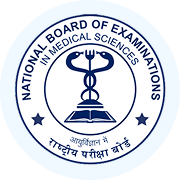NEET PG Exam > NEET PG Notes > Forensic Medicine and Toxicology (FMT) > Mind Map: Historical Perspective: FMT
Mind Map: Historical Perspective: FMT | Forensic Medicine and Toxicology (FMT) - NEET PG PDF Download

The document Mind Map: Historical Perspective: FMT | Forensic Medicine and Toxicology (FMT) - NEET PG is a part of the NEET PG Course Forensic Medicine and Toxicology (FMT).
All you need of NEET PG at this link: NEET PG
|
135 docs|3 tests
|
FAQs on Mind Map: Historical Perspective: FMT - Forensic Medicine and Toxicology (FMT) - NEET PG
| 1. What is the significance of the NEET PG exam in the medical education system? |  |
Ans. The NEET PG exam serves as a national entrance test for postgraduate medical education in India. It plays a crucial role in standardizing the admission process for various postgraduate courses, ensuring that candidates possess the necessary knowledge and skills to pursue advanced studies in medicine. The exam helps maintain quality in medical education and enhances the overall healthcare system by selecting competent candidates for specialization.
| 2. How has the structure of the NEET PG exam evolved over the years? |  |
Ans. The NEET PG exam has undergone several changes since its inception. Initially, it was a single entrance test for various postgraduate medical courses, but over time, adjustments were made to improve its fairness and effectiveness. Changes include the introduction of a uniform syllabus, the shift from subjective to objective question formats, and the implementation of an online testing system. These modifications aim to better assess candidates' knowledge and adaptability to current medical practices.
| 3. What are the eligibility criteria for appearing in the NEET PG exam? |  |
Ans. To be eligible for the NEET PG exam, candidates must hold a recognized medical degree, such as an MBBS or equivalent, and should have completed their internship before the examination date. Additionally, candidates must meet certain age requirements and may need to fulfill other specific criteria set by the conducting body. These requirements ensure that only qualified individuals can compete for postgraduate positions in medicine.
| 4. What types of questions are typically included in the NEET PG exam? |  |
Ans. The NEET PG exam primarily consists of multiple-choice questions (MCQs) covering various subjects related to medicine. The questions assess a candidate's knowledge across disciplines such as anatomy, physiology, biochemistry, pharmacology, pathology, and more. The exam is designed to test not only factual knowledge but also clinical reasoning and problem-solving skills, which are essential for medical practice.
| 5. How does the NEET PG exam impact the future of medical professionals in India? |  |
Ans. The NEET PG exam significantly influences the career trajectories of medical professionals in India. Success in the exam opens doors to postgraduate training in various specialties, which is essential for those seeking to advance their careers in medicine. Moreover, the exam helps in creating a structured pathway for continuous learning and specialization, ultimately contributing to the development of a skilled healthcare workforce capable of addressing the complexities of modern medicine.
Related Searches















